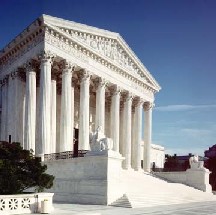The US Supreme Court Monday heard oral arguments in Melendez-Diaz v. Massachusetts (No. 07-591), and appeared inclined to rule that defendants in drug and other cases confronted with crime lab reports must be allowed to cross-examine the forensic analysts who prepare the reports. The case involves a Massachusetts man who challenged his conviction for cocaine use after he was not allowed to question the analyst who examined the alleged cocaine.

Crime labs analyzed some 1.9 million substances following drug arrests in 2006, a figure noted by 35 states that joined with Massachusetts in urging the court not to require that cross-examination of lab analysts be allowed. Some 20 states, including California, already give defendants some right to cross-examine lab employees.
Arguing for the state of Massachusetts, state Attorney General Martha Coakley warned that if lab analysts had to be made available to testify, "district court misdemeanor drug prosecutions would essentially grind to a halt."
But Jeffrey Fisher, the attorney representing Melendez-Diaz, told the justices there are not that many cases where defendants want to make an issue of lab reports, mainly because in most cases there is little dispute that the substance seized was illicit drugs. "There is every reason to believe it's not going to cause any problem, because defendants aren't going to want to challenge them very often," Fisher said.
The justices appeared unsympathetic to Coakley's arguments. "I do wish you would comment on the argument that the state of California, a huge state with many, many drug prosecutions, seems to get along all right," Justice Anthony Kennedy said to Coakley. She had no reply.
Justice Stephen Breyer noted that there have been repeated reports of lab analyses poorly done, tests not actually run, and results manipulated to hurt defendants in recent years. "Aren't there some things I read in the paper all the time about these laboratories in various places, and they lost the results, they got it all wrong?" he asked.
Expect a decision sometime next spring or summer.
This work by StoptheDrugWar.org is licensed under Creative Commons Attribution-ShareAlike 4.0 International
Add new comment